How to Study for Exams Effectively and Still Have a Life
Tired of cramming? Learn how to study for exams effectively with science-backed strategies that reduce stress and boost grades. Your guide to smarter studying.
So, you want to ace your exams and actually remember what you learned without turning into a caffeine-fueled zombie? You need a better game plan than just rereading your notes until your eyes cross. The smartest strategies are all about two key ideas: active recall (forcing your brain to pull out information, not just recognize it) and spaced repetition (reviewing that info at smart, spaced-out intervals). This one-two punch is what truly locks knowledge into your long-term memory.
Forget about cramming. This is how you really learn.
The End of All-Nighters and Useless Highlighting
Let's be real—the all-night cram session is a student rite of passage, but it's a terrible way to remember anything past exam day. And if your go-to study method is highlighting your textbook until it looks like a neon art project, you're working hard, not smart. This guide is your escape plan.
We're going to tear down the myth that "more hours equals better grades" and show you a system built on how your brain actually works. It's time to stop treating your mind like a hard drive you can just dump files onto and hope they stick. Spoiler: they won't.
Why Your Old Study Habits Fail You
Passive learning techniques, like rereading chapters or staring at your beautifully highlighted notes, feel productive. But they create a dangerous illusion of competence. Your brain recognizes the material, which tricks you into thinking you know it. In reality, you're just familiar with it.
That's the reason you can read a chapter five times and still draw a complete blank when the test is sitting in front of you.
The core problem is this: familiarity is not the same as mastery. Effective studying is about building deep, retrievable knowledge, not just recognizing concepts you've seen before.
A Smarter Path Forward
The goal here is simple: switch from passive review to active engagement. We'll get into powerful concepts like active recall and spaced repetition that truly anchor information in your long-term memory. Don't worry, this isn't about piling more work onto your already slammed schedule.
Instead, we'll show you how to study smarter, not harder. Imagine turning tedious tasks like making flashcards into automated processes. That's where a tool like Zemith becomes your secret weapon. You can use its AI to instantly create flashcards from your lecture notes or generate practice quizzes from a PDF, freeing you up to focus on the actual learning.
Juggling this new approach with multiple classes can feel like a balancing act. If you need some tips on how to handle different subjects without losing your mind, check out our guide on how to manage multiple projects. The strategies work just as well for coursework as they do in the professional world.
Now, let's take a quick look at how we're going to upgrade your study habits.
Your Study Habit Upgrade At a Glance
Here’s a quick look at how to trade common, ineffective study habits for proven strategies that actually get results. Ready to level up?
| The Old Way (That Doesn't Work) | The Smart Way (Backed by Science) | Why It's a Game-Changer |
|---|---|---|
| Passively rereading notes or textbooks | Active Recall: Testing yourself with flashcards or practice questions. | Forces your brain to retrieve information, strengthening neural pathways. It's the difference between watching a workout and actually lifting the weights. |
| Highlighting huge blocks of text | Summarizing key concepts in your own words. | Makes you process the information, not just recognize it. If you can't explain it simply, you don't know it well enough. |
| Cramming everything the night before | Spaced Repetition: Reviewing material at increasing intervals over time. | Interrupts the "forgetting curve" and moves info to long-term memory. It's like telling your brain, "Hey, this is actually important, don't delete it!" |
| Studying for long, unfocused hours | The Pomodoro Technique: Focused 25-minute sessions with 5-minute breaks. | Maximizes focus and prevents mental burnout. It's a sprint, not a marathon. |
Switching to these smarter methods might feel different at first, but the payoff is huge. You'll build a deeper, more lasting understanding of the material.
Prepare to study less, learn more, and finally get some sleep.
Crafting a Study Plan That Actually Works
We've all been there—staring at a mountain of lecture notes, feeling that familiar wave of panic, and having no idea where to even start. It’s a classic pre-exam ritual, but it doesn't have to be. Let's build a study blueprint that kicks that stress to the curb for good.
This isn't about creating some beautiful, color-coded schedule you'll ditch by day two. It’s about being smart and strategic. The first real step is working backward from your exam date. A final in three weeks demands a totally different game plan than a midterm that's just five days away.
Prioritize Like a Pro With The 80/20 Rule
Ever heard of the Pareto Principle? It’s often called the 80/20 rule, and the gist is that roughly 80% of your results come from just 20% of your effort. When it comes to studying, this is pure gold. It means a small slice of your course material will likely make up the bulk of your exam score. Your mission, should you choose to accept it, is to find that critical 20%.
Stop treating every single chapter and lecture note like it carries the same weight. Instead, you need to hunt down the high-impact topics. Your syllabus is the first place to look; professors often drop major hints about what they think is most important. Zero in on concepts that pop up repeatedly or get the most lecture time. This simple shift turns an overwhelming syllabus into a manageable hit list.
Of course, digging through all that material to find the key concepts is a chore. This is a perfect spot to let technology do the heavy lifting for you. With a tool like Zemith, you can just upload your syllabus and course materials, and its AI will analyze everything to pinpoint the core concepts. This helps you focus your precious energy where it'll actually move the needle.
Here’s a quick look at what this process looks like—moving from just passively reading to actively learning.
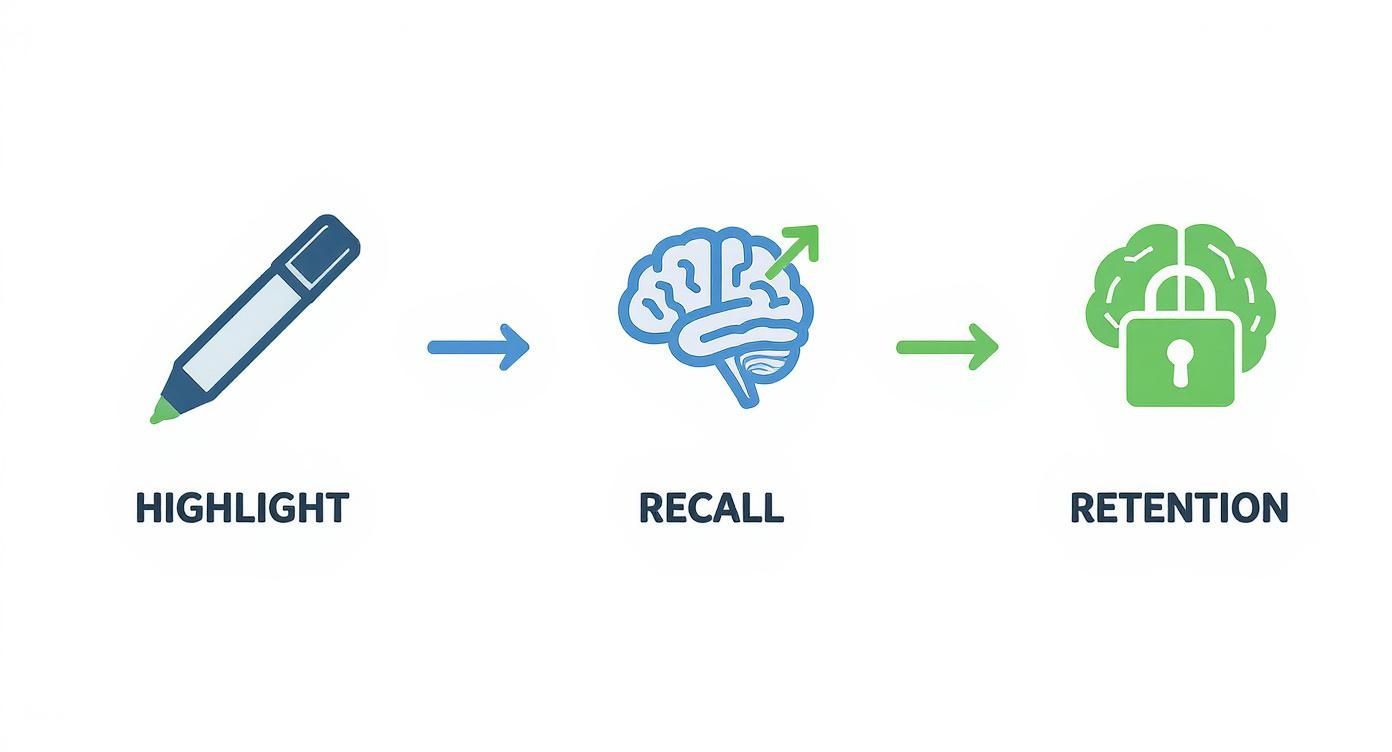
This whole flow is about shifting from simply recognizing information to truly recalling it from scratch. That's the secret to locking it into your long-term memory.
Automate Your Study Schedule
Once you know what to study, the next puzzle is when. Breaking down massive subjects into smaller, bite-sized chunks is absolutely essential if you want to avoid burnout. A giant topic like "The French Revolution" feels a lot less intimidating when you chop it into "Causes," "Key Figures," and "Major Events."
This is where a bit of automation can be your best friend. Imagine taking that prioritized list of topics and turning it into a perfectly spaced-out study plan without having to fiddle with a calendar yourself. It means you can spend less time organizing and more time actually learning.
With the right tools, you can get a structured, actionable plan generated straight from your course documents. This lets you dive right into what really matters—mastering the material. Zemith does exactly this, transforming your syllabus into a day-by-day study schedule so you can stop planning and start learning.
The need for smarter, more personalized learning isn't just a feeling; it's a huge global trend. The exam prep and tutoring market was valued at an estimated $50 billion in 2025 and is only expected to grow, which tells you a lot about the academic pressure students face worldwide.
A great study plan has to be flexible. Life happens. Build in some buffer days for when you get sick, have a bad day, or run into a topic that’s way trickier than you expected. A plan that shatters the first time something goes wrong isn't a plan; it's just another source of stress.
Weaving It All Together
A killer plan is more than just a schedule; it's built on a foundation of smart time management. To get a handle on your study hours, check out these essential time management tips for students. When you combine those techniques with a well-structured plan, you’ve got a recipe for success.
And remember, your study plan is just one part of your student toolkit. For more ways to stay on top of your game, check out our guide to the 12 best student productivity apps for 2025.
Your Brain's Secret Weapon: Active Recall
If you spend most of your study time just re-reading notes, you're leaving the single most powerful learning technique on the table. We’re taught that studying is about cramming information in, but the real learning happens when you force your brain to pull that information back out.
This is active recall, and it's like doing bicep curls for your memory.
Think about it. Passively reading is like watching a workout video. You see the moves, but you’re not building any muscle. Active recall is you actually picking up the weights and doing the reps. It’s definitely harder, but it’s the only way to get stronger.
Think Beyond Flashcards
Flashcards are the classic active recall tool, and they work for a good reason. But the core principle—"pull it out of your brain"—can be applied to any subject in some really creative ways.
Let’s look at a couple of my favorites that go beyond simple definitions.
- The Feynman Technique: Grab a concept from your notes and try to explain it out loud as if you were talking to a five-year-old. When you have to use simple words, you're forced to actually understand the idea, not just repeat the jargon. If you get stuck or find yourself saying "well, it's complicated," you've just found a weak spot in your knowledge. Time to review.
- The "Blurting" Method: This one is as simple (and messy) as it sounds. Take a blank piece of paper, pick a topic, and just write down everything you can remember about it. Don't worry about making it pretty—just get it all on the page. Once you're done, compare it to your notes. The gaps in your knowledge will become instantly obvious.
These methods work because they create a mental struggle. That struggle is exactly what builds strong, lasting memories. This isn't just a quirky study hack; it's a fundamental part of how we learn, fueling a global test preparation market that hit around $569 million in 2024. As school gets more competitive, students are turning to proven strategies like these to gain an edge.
Create an Active Recall Machine from Your Notes
Okay, so creating practice quizzes or blurting notes for every single chapter sounds like a ton of work, right? It can be. This is where a little bit of tech can make active recall a seamless part of your routine instead of just another chore. You want to spend your brainpower recalling the info, not creating the materials.
With Zemith's AI, you can just upload your lecture notes, a PDF, or a research paper and instantly get back a set of flashcards or a practice quiz. It pulls out the key info for you, so you can spend less time prepping and more time practicing.
Here’s a peek at how fast Zemith turns your static notes into a powerful study tool.

As you can see, any document can become a deck of interactive flashcards in seconds, turning boring review time into a legit active recall session.
This kind of automation means you can test yourself on a chapter you finished reading just five minutes ago. It completely removes the friction. If you want to dive deeper into making great digital flashcards, check out our guide on how to create flashcards that will actually stick in your memory.
Active recall strengthens the neural pathways tied to a memory. Every time you successfully pull up a piece of information, you make that pathway stronger and easier to find later—like, say, during an exam.
Active Recall Ideas for Any Subject
Wondering if this will actually work for your classes? Trust me, it’s more flexible than you think. Whether you're dealing with organic chemistry or medieval history, there’s an active recall method that’s perfect for it. Here's a cheat sheet for long-tail keywords about studying for different subjects!
| Subject Type | Best Active Recall Method | How Zemith Supercharges It |
|---|---|---|
| STEM (How to study for math and science exams) | Work through problems without looking at the solution. Then, explain the steps out loud. | Upload problem sets or lecture notes to generate quizzes that test your understanding of core formulas and concepts. |
| Humanities (How to study for history exams effectively) | Use the "blurting" method for key events or characters. Create timelines from memory. | Turn long reading assignments into concise Q&A flashcards to test your recall of key themes, dates, and arguments. |
| Languages (How to learn vocabulary for a test) | Practice speaking and writing sentences from memory. Use flashcards for vocabulary. | Generate flashcards for new vocabulary lists or practice quizzes on grammar rules directly from your lesson notes. |
By making active recall the core of your study sessions, you stop being a passive observer and become an active participant in your own learning. It's one of the biggest and most effective changes you can make to how you study, and the results speak for themselves.
Using Spaced Repetition to Beat the Forgetting Curve
Ever cram for a test, ace it, and then a week later, feel like you've forgotten everything? You’re not alone. It’s a frustratingly common problem called the “forgetting curve.” Our brains are wired to dump information they don't think is important, which is a real pain when it comes to exam season.
The good news is you can fight back. The secret weapon is a technique called spaced repetition. Think of it as telling your brain, "Hey, this is important—don't delete it!" It works by showing you information right at the moment you're about to forget it.
How Spaced Repetition Actually Works
Instead of one massive, soul-crushing study session, you review material in short bursts over time. The intervals get longer and longer.
So, the first time you review a new concept might be a day after you learn it. The next review could be three days later, then a week after that, and so on. Every time you successfully remember the info, you're building a stronger neural pathway. You’re literally telling your brain to move that knowledge from flimsy short-term memory into the long-term vault.
A simple schedule might look like this:
- Day 1: Learn the new concept (let's say, the causes of the Peloponnesian War).
- Day 2: A quick 5-10 minute review.
- Day 4: Another quick review.
- Day 8: One more review session.
By that last review, the information is much more likely to stick around for the long haul. The tricky part? Juggling this for every single topic across all your classes. It's a logistical nightmare. Who wants to manage dozens of review schedules in a spreadsheet? That’s where a little help from technology comes in handy.
Let Technology Handle the Tedious Parts
Trying to manage a spaced repetition schedule by hand is a recipe for disaster. Forget to review one topic, and the whole system starts to fall apart. But what if you had a smart scheduler that handled it all for you, popping up exactly what you need to study, right when you need to study it?
This is where a tool like Zemith can be a game-changer. Its built-in spaced repetition algorithm takes care of the entire process. When you make flashcards or quizzes from your notes, Zemith keeps an eye on how you're doing and automatically sets the next review date. No more guesswork or messy calendars.
Spaced repetition isn't about studying more; it's about studying smarter. The goal is to interrupt the forgetting process at the perfect moment, reinforcing the memory each time.
It’s no surprise that digital learning tools are becoming central to how students prepare for exams. The global test prep market was valued at a massive $100 billion in 2023, and it's still growing like crazy. As this trend continues, tools that automate proven learning methods are becoming essential. You can dig into the numbers in the full test preparation market report.
This approach works even better when you combine it with a solid note-taking system. If you want to level up how you capture information in the first place, check out our guide to the best note-taking apps. Pairing great notes with an automated review system creates a powerful, seamless path from the lecture hall to long-term memory.
Your Study Environment and Mindset Matter More Than You Think
You can have the most brilliant study plan on the planet, but it’ll fall apart if your environment is working against you. Trying to cram for an exam while your phone buzzes every 30 seconds is like trying to fill a leaky bucket—you're putting in the effort, but getting nowhere fast.
Your study space isn't just a place; it's a tool. The goal is to create a zone of zero friction, where the easiest thing to do is the one thing you’re supposed to be doing: studying.

This means your phone goes into another room. Seriously. Not flipped over on your desk. Not on silent. Another room. Research actually shows that just having your phone nearby can sap your cognitive capacity. Out of sight, out of mind, out of your way.
Sprints, Not Marathons: The Pomodoro Technique
Let's be real: staring at a textbook for three hours straight is a recipe for burnout, not brilliance. Our brains just aren't built for those long, grueling marathons of focus. They work way better in short, intense sprints.
This is where the Pomodoro Technique comes in, and it's a game-changer. It’s also beautifully simple.
Here’s the breakdown:
- Set a timer for 25 minutes. For that time, and that time only, you do nothing but your one chosen task. No texts, no snacks, no sudden urge to organize your sock drawer.
- When the timer goes off, take a 5-minute break. Actually get up, stretch, grab some water—anything but staring at a screen.
- After four "Pomodoros," take a longer break (15-30 minutes).
This method fights off mental fatigue and keeps you from falling down the procrastination rabbit hole. It turns a massive task like "study for biology" into a tiny, manageable one: "just focus for 25 minutes." Anyone can do that.
Beyond just arranging your physical space, knowing how to focus while studying is a skill, and techniques like this help you build it. You can supercharge this by using a focus tool like Zemith’s Focus OS feature, which is designed to block digital distractions and manage your work sprints so your 25 minutes are truly focused.
Your Most Powerful (and Underrated) Study Tool: Sleep
Can we get one thing straight? Pulling an all-nighter is not a badge of honor. It’s academic self-sabotage.
Sleep is when your brain does its most important work, locking in the day's learning through a process called memory consolidation. When you skip sleep, you're basically hitting "cancel" on that entire process. All those hours of studying? Wasted.
Aiming for 7-9 hours of quality sleep isn't a luxury; it's a critical part of any effective study strategy.
Think of it this way: Studying loads information into your brain's temporary files. Sleep is the "save" button that moves it to the permanent hard drive. Don't forget to save your work.
Taming the Exam Anxiety Beast
It’s completely normal to feel stressed before a big test. But when that stress spirals into crippling anxiety, it can block you from accessing the information you know is in there. Managing this is just as important as managing your study time.
Simple mindfulness or breathing exercises can make a huge difference. Before a study session or the exam itself, just take a few minutes to breathe deeply. Inhale for four counts, hold for four, and exhale for six. This small action calms your nervous system and brings your focus back to the present, allowing you to walk into the test feeling calm, confident, and ready to show what you know.
Your Pre-Exam Week Game Plan
Alright, it's the final countdown. This is where we pull everything together into a clear, stress-free action plan for the week leading up to your exam. Forget the last-minute panic; this is all about being strategic, calm, and confident.
The big mental shift this week is moving from learning new material to reinforcing what you already know. Trust me, if you’re still trying to crack open brand new chapters 48 hours before the test, you’re just setting yourself up for a world of pain. The goal now is consolidation, not cramming.
Shift from Learning to Reviewing
Your main focus should be targeted active recall sessions. Instead of passively re-reading your textbook for the tenth time, you need to be doing timed practice tests to get comfortable with the format and the pressure. Think of it as the academic equivalent of a dress rehearsal.
A timed practice exam isn't just about getting answers right; it's about building your mental stamina. You’ll get a real feel for the pacing, figure out how to allocate your time across different sections, and pinpoint which question types always seem to trip you up.
Your Final Push Command Center
This is the perfect time to make Zemith your mission control. You should have all your notes, flashcards, and summaries organized in one spot. Did a practice test reveal a weak spot? You can instantly turn those tricky topics into fresh quizzes. For a few more ideas on this, check out our guide on how to create a quiz from a PDF in just a few seconds.
Here's a simple checklist to keep you on track during this critical week:
- Finalize Your "Cheat Sheet": Even if you can't actually bring it into the exam, the act of creating a single-page summary of the most critical formulas, dates, and concepts is an incredibly powerful review tool.
- Tackle Your Weak Spots: Use your practice test results to hunt down your problem areas. Spend your final hours patching up these specific gaps, not re-studying entire subjects you’ve already mastered.
- Plan Your Exam Day Logistics: Don't wait until the morning of the test. Lay out your clothes, pack your bag (pens, calculator, ID, snacks), and figure out your breakfast plan the night before. Reducing small decisions on exam day frees up a surprising amount of mental energy.
The goal of this final week is not to learn everything, but to become confident in what you do know. Walk into that exam hall feeling prepared and in control, not panicked and overwhelmed. You've put in the work; now it's time to perform.
Got Questions About Prepping for Exams? We've Got Answers.
Even the best-laid study plans run into a few common questions. Let's tackle some of the biggest ones I hear all the time so you can get back to what matters: actually learning the material.
Think of this as your personal FAQ for studying smarter.
How Many Hours a Day Should I Study for an Exam?
Everyone asks this, but honestly, it’s the wrong question. It's like asking how many reps you need to do at the gym without considering the weight or your form. Quality beats quantity, every single time.
A laser-focused two-hour session using active recall is worth more than a four-hour slog where you're just passively re-reading notes and scrolling through your phone. The real question isn't "How long did I study?" but "What did I actually accomplish?"
Forget about tracking time; track progress. Did you finally nail that tricky calculus concept? Did you work through an entire practice test? Hitting tangible goals is what moves the needle, not just watching the clock.
If you struggle with this, you can use a tool like Zemith to build your study plan around topics instead of time. It helps you break down that massive syllabus into concrete daily tasks. That way, you know exactly what you need to master each day, whether it takes you one hour or three.
Is It Better to Study Alone or in a Group?
Ah, the classic debate. The real answer? Both. They serve totally different purposes, and you need a mix of the two to really succeed.
- Go solo first: This is non-negotiable. It's your time for deep work—drilling flashcards, doing practice problems, and getting that core knowledge down cold. You can't show up to a group session empty-handed and expect to get anything out of it.
- Use the group to test your understanding: Once you've done the heavy lifting alone, a group session is the perfect place to see if you really know your stuff. Try explaining a complex idea to your friends. If they get it, you've probably mastered it. If you get a bunch of blank stares, you know exactly where you need to go back and review.
The key is to make sure your study group is actually a study group, not just a social hour. The best approach is a hybrid model: learn it on your own, then reinforce it and teach it in a group.
How Do I Stay Motivated When I Just Don't Feel Like It?
Let’s be real: motivation is flaky. It shows up when it wants and disappears right when you need it most. The secret to getting things done isn’t waiting for motivation to strike—it's building solid habits.
When you feel that wall of procrastination, make the task ridiculously small. Don't tell yourself, "I need to study biology for three hours." Instead, say, "I'm just going to review five flashcards." Seriously, that’s it. Anyone can do that. That tiny step is often all it takes to build momentum, and momentum is way more reliable than motivation.
It also helps to connect what you're doing to a bigger "why." What's the point of acing this exam? Getting into your dream program? Landing that internship? Keeping that long-term goal front and center can give you the push you need when you're feeling completely drained.
Ready to stop guessing and start building a study system that actually works? Zemith brings all the right tools together—from AI-powered flashcards and quizzes to a workspace that helps you focus—all in one spot. Ditch the chaos and start studying smarter. Discover how at zemith.com.
Explore Zemith Features
Introducing Zemith
The best tools in one place, so you can quickly leverage the best tools for your needs.
All in One AI Platform
Go beyond AI Chat, with Search, Notes, Image Generation, and more.
Cost Savings
Access latest AI models and tools at a fraction of the cost.
Get Sh*t Done
Speed up your work with productivity, work and creative assistants.
Constant Updates
Receive constant updates with new features and improvements to enhance your experience.
Features
Selection of Leading AI Models
Access multiple advanced AI models in one place - featuring Gemini-2.5 Pro, Claude 4.5 Sonnet, GPT 5, and more to tackle any tasks
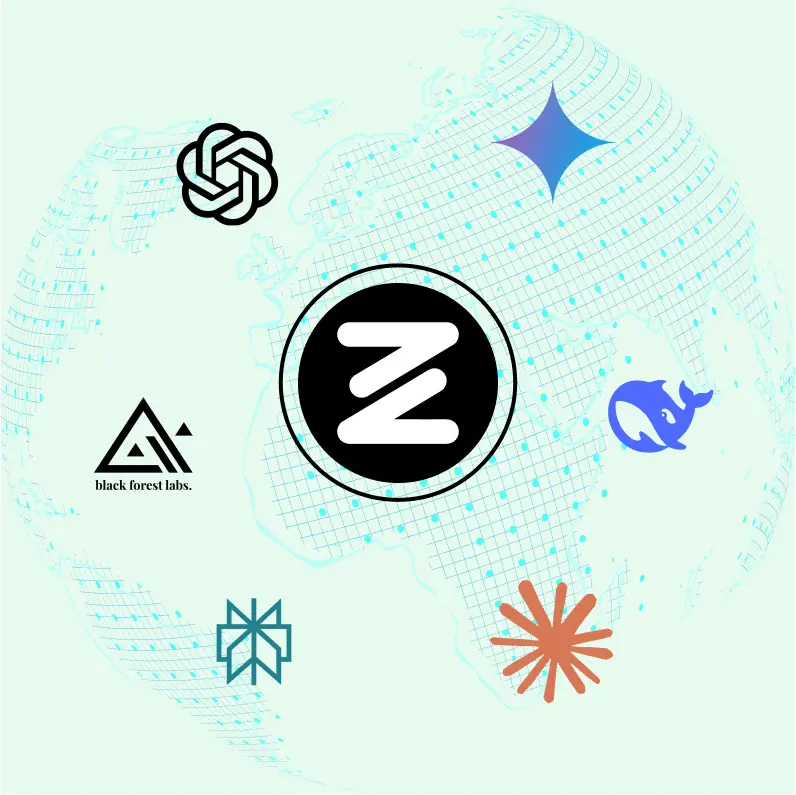
Speed run your documents
Upload documents to your Zemith library and transform them with AI-powered chat, podcast generation, summaries, and more
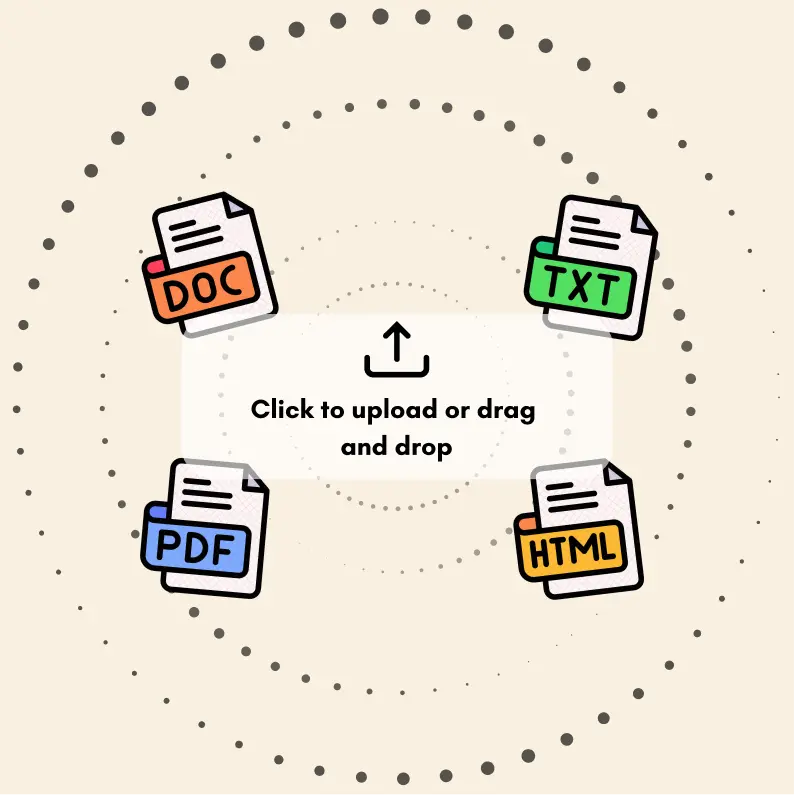
Transform Your Writing Process
Elevate your notes and documents with AI-powered assistance that helps you write faster, better, and with less effort
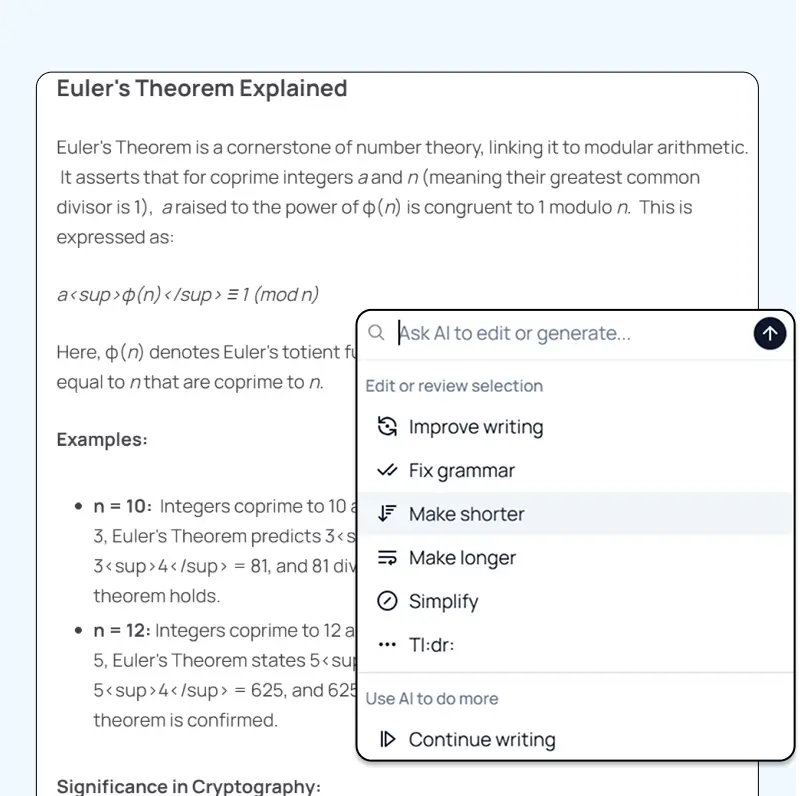
Unleash Your Visual Creativity
Transform ideas into stunning visuals with powerful AI image generation and editing tools that bring your creative vision to life
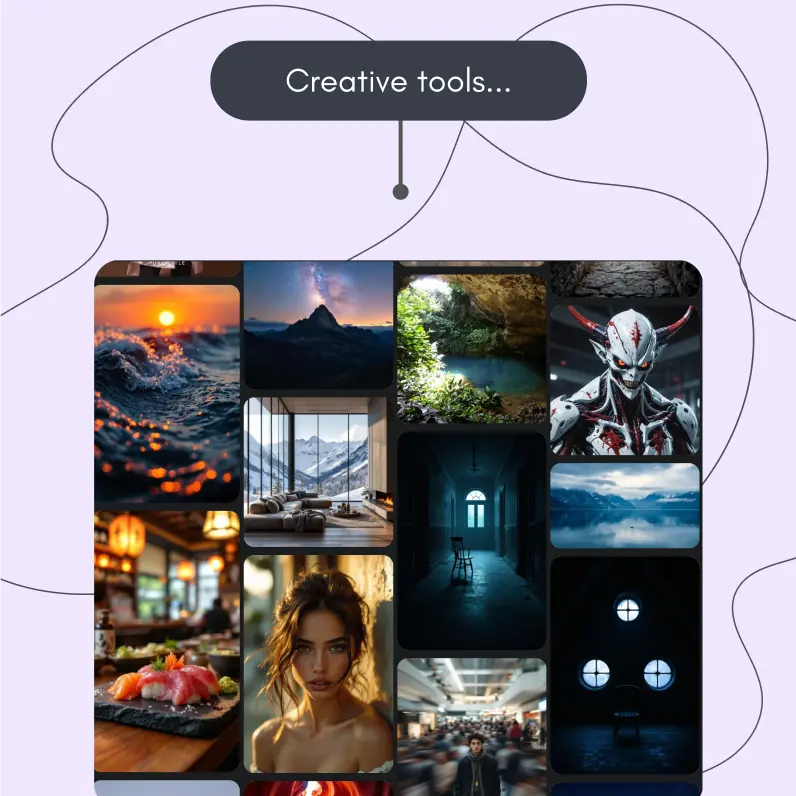
Accelerate Your Development Workflow
Boost productivity with an AI coding companion that helps you write, debug, and optimize code across multiple programming languages
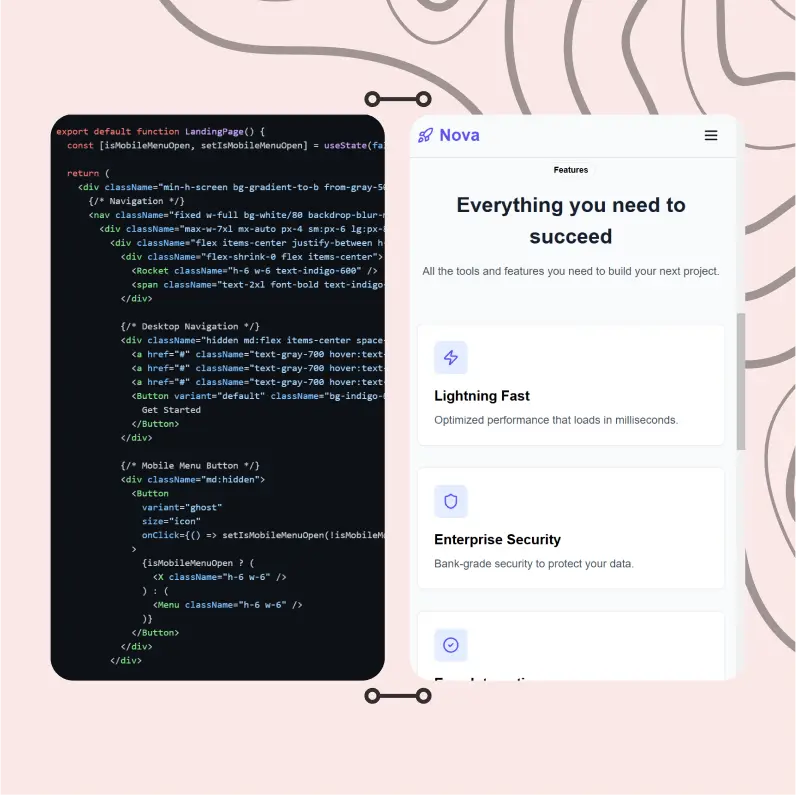
Powerful Tools for Everyday Excellence
Streamline your workflow with our collection of specialized AI tools designed to solve common challenges and boost your productivity
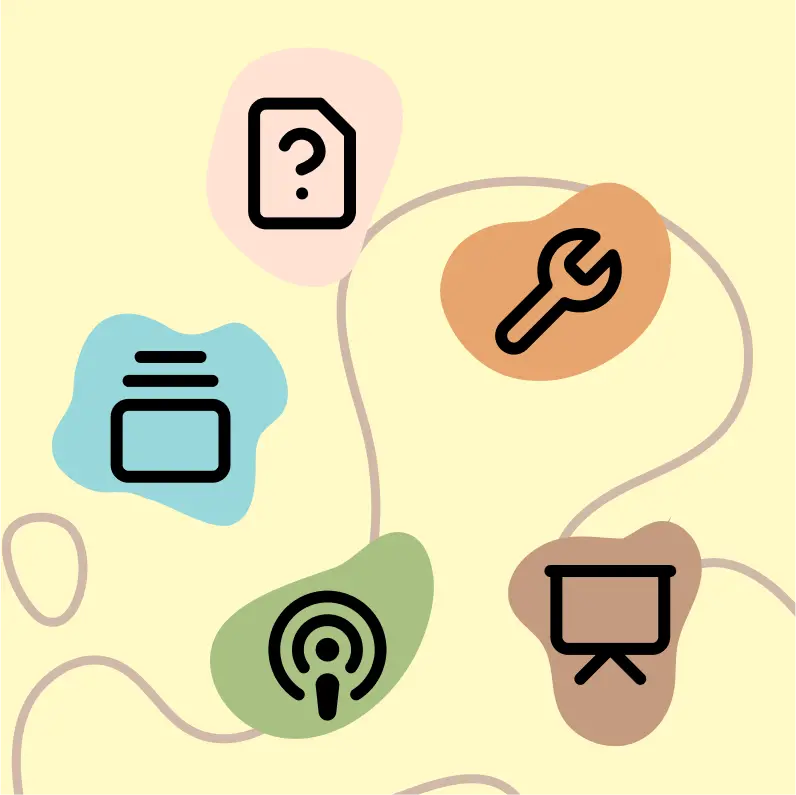
Live Mode for Real Time Conversations
Speak naturally, share your screen and chat in realtime with AI
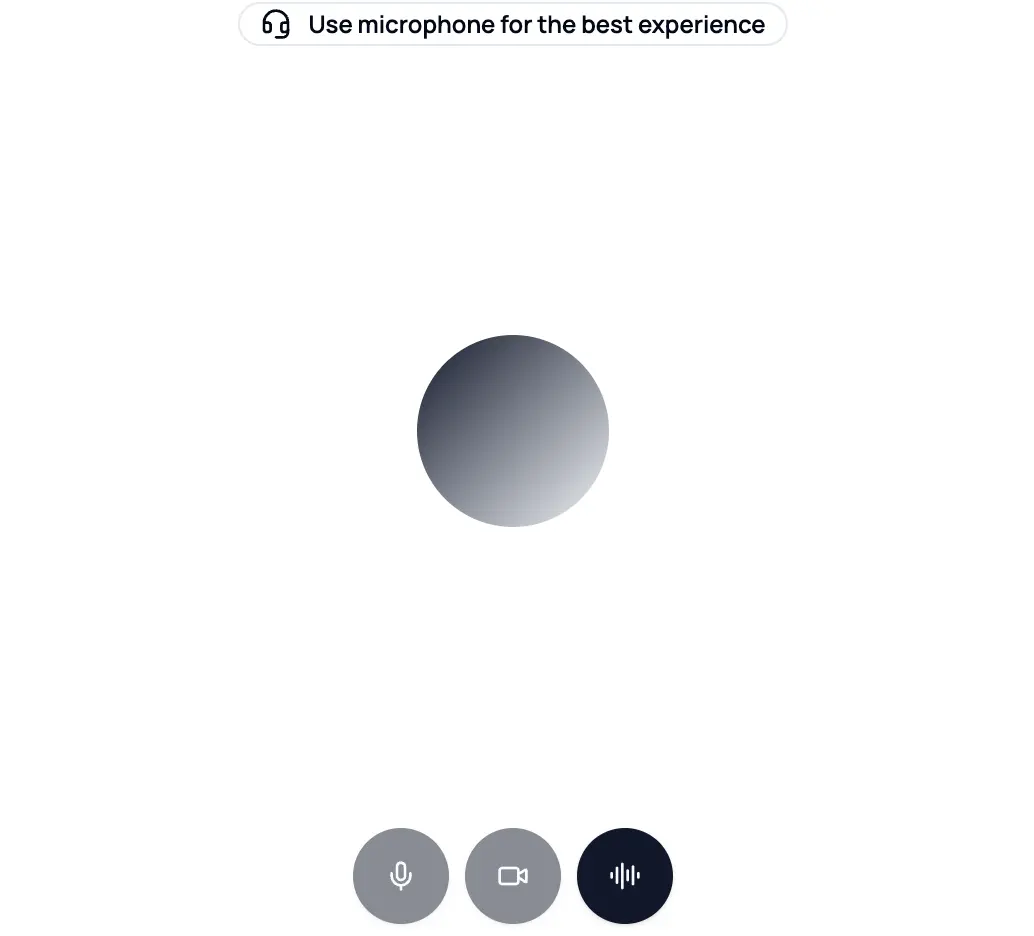
AI in your pocket
Experience the full power of Zemith AI platform wherever you go. Chat with AI, generate content, and boost your productivity from your mobile device.

Deeply Integrated with Top AI Models
Beyond basic AI chat - deeply integrated tools and productivity-focused OS for maximum efficiency
Straightforward, affordable pricing
Save hours of work and research
Affordable plan for power users
Plus
- 10000 Credits Monthly
- Access to plus features
- Access to Plus Models
- Access to tools such as web search, canvas usage, deep research tool
- Access to Creative Features
- Access to Documents Library Features
- Upload up to 50 sources per library folder
- Access to Custom System Prompt
- Access to FocusOS up to 15 tabs
- Unlimited model usage for Gemini 2.5 Flash Lite
- Set Default Model
- Access to Max Mode
- Access to Document to Podcast
- Access to Document to Quiz Generator
- Access to on demand credits
- Access to latest features
Professional
- Everything in Plus, and:
- 21000 Credits Monthly
- Access to Pro Models
- Access to Pro Features
- Access to Video Generation
- Unlimited model usage for GPT 5 Mini
- Access to code interpreter agent
- Access to auto tools
- 10000 Credits Monthly
- Access to plus features
- Access to Plus Models
- Access to tools such as web search, canvas usage, deep research tool
- Access to Creative Features
- Access to Documents Library Features
- Upload up to 50 sources per library folder
- Access to Custom System Prompt
- Access to FocusOS up to 15 tabs
- Unlimited model usage for Gemini 2.5 Flash Lite
- Set Default Model
- Access to Max Mode
- Access to Document to Podcast
- Access to Document to Quiz Generator
- Access to on demand credits
- Access to latest features
- Everything in Plus, and:
- 21000 Credits Monthly
- Access to Pro Models
- Access to Pro Features
- Access to Video Generation
- Unlimited model usage for GPT 5 Mini
- Access to code interpreter agent
- Access to auto tools
What Our Users Say
Great Tool after 2 months usage
simplyzubair
I love the way multiple tools they integrated in one platform. So far it is going in right dorection adding more tools.
Best in Kind!
barefootmedicine
This is another game-change. have used software that kind of offers similar features, but the quality of the data I'm getting back and the sheer speed of the responses is outstanding. I use this app ...
simply awesome
MarianZ
I just tried it - didnt wanna stay with it, because there is so much like that out there. But it convinced me, because: - the discord-channel is very response and fast - the number of models are quite...
A Surprisingly Comprehensive and Engaging Experience
bruno.battocletti
Zemith is not just another app; it's a surprisingly comprehensive platform that feels like a toolbox filled with unexpected delights. From the moment you launch it, you're greeted with a clean and int...
Great for Document Analysis
yerch82
Just works. Simple to use and great for working with documents and make summaries. Money well spend in my opinion.
Great AI site with lots of features and accessible llm's
sumore
what I find most useful in this site is the organization of the features. it's better that all the other site I have so far and even better than chatgpt themselves.
Excellent Tool
AlphaLeaf
Zemith claims to be an all-in-one platform, and after using it, I can confirm that it lives up to that claim. It not only has all the necessary functions, but the UI is also well-designed and very eas...
A well-rounded platform with solid LLMs, extra functionality
SlothMachine
Hey team Zemith! First off: I don't often write these reviews. I should do better, especially with tools that really put their heart and soul into their platform.
This is the best tool I've ever used. Updates are made almost daily, and the feedback process is very fast.
reu0691
This is the best AI tool I've used so far. Updates are made almost daily, and the feedback process is incredibly fast. Just looking at the changelogs, you can see how consistently the developers have ...
